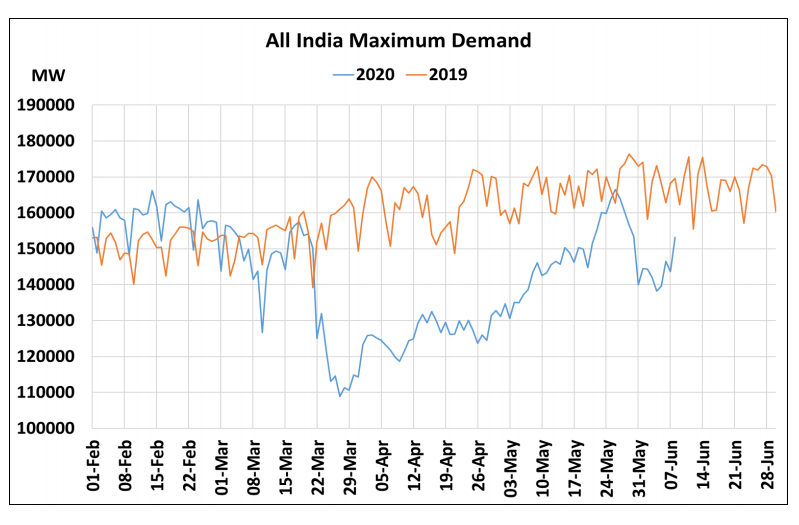
After crossing a peak of 166 GW on May 26, the power demand since then has been on a downward spiral falling to lowest 138 GW on June 4, POSOCO data showed
New Delhi: With the decrease in temperature India’s peak power demand has registered a fall of 19 per cent in the first eight days of June. On June 4, the peak demand registered the sharpest drop of around 24 per cent to 138 gigawatt (GW).
After crossing a peak of 166 GW on May 26, the power demand since then has been on a downward spiral falling to lowest 138 GW on June 4, data available with Power System Operation Corporation (POSOCO) shows.
Although the peak demand — the highest energy supply during the day — has picked up post June 4, the average fall in peak demand between June 1 to June 8 was reported to be 19.05 per cent.
With the northern region of the country hit with an intense heat wave in May, the peak power demand on May 26 crossed the 166 GW mark, registering the highest jump in the peak demand in the month but post that due to continuous fall in temperature the peak demand has again slumped in June.
India’s power demand has been falling since March in the wake of the nationwide lockdown to contain the spread of the Coronavirus pandemic. The government had announced the lockdown on March 25 and later extended it four times.
Currently, unlock 1.0 is in place with graded relaxations for resumption of industrial and construction activities in non-containment zones mapped in the country.
According to research and ratings agency CRISIL, with weak power demand and high cash losses amid the Covid-19 pandemic, power distribution companies (discoms) can end up owing lenders a staggering Rs 4.5 lakh crore by the end of 2020-21.
All India power demand could be lower by 2 per cent in 2020-21 because high paying industrial and commercial consumers who cross-subsidise domestic and agricultural consumers have been the worst hit by the lockdown, CRISIL said.

















